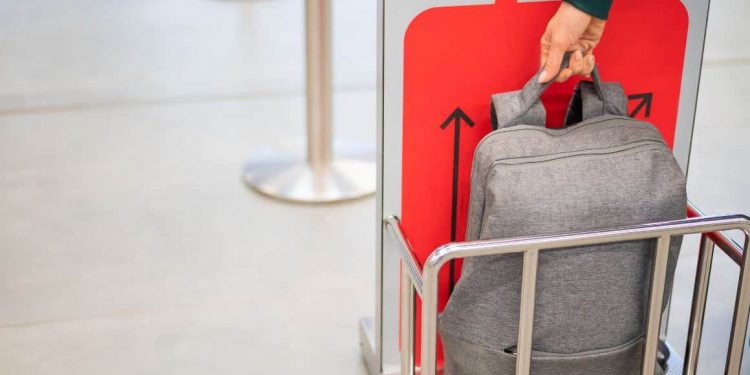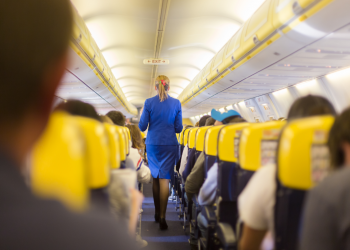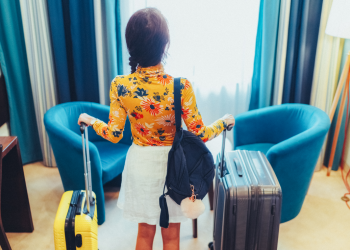Table of Contents
Perhaps, like me, you’ve experienced the wave of excitement that washes over you as you click “purchase” on those airline tickets—your dream vacation is officially on the horizon. But have you noticed how those ever-dreaded airline baggage fees, hidden in the fine print and lurking behind checkout pages, are always ready to inflate your travel expenses and deflate your spirits?
What if I told you there are ways to outsmart those fees? Ways to keep your hard-earned money in your pocket where it belongs?
Welcome to your comprehensive guide on “How to Minimize or Eliminate Airline Baggage Fees.”
Stay with us as we navigate the ins and outs of airline policies, explore innovative packing strategies, and unlock travel hacks that’ll help you sidestep those pesky baggage fees, making your next adventure not just memorable, but also affordable.
1 Proven, Smart and Unconventional Strategies to Minimize or Completely Eliminate Baggage Fees
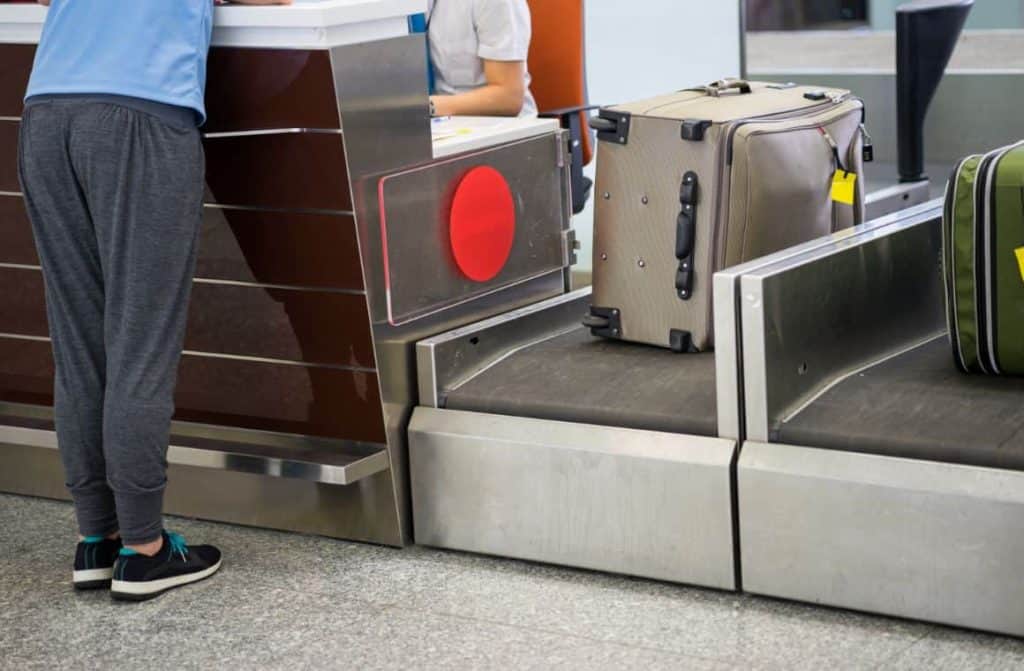
Here are some pretty smart ways to minimise or completely avoid baggage fees.
- Travel Light: The first strategy is the simplest: travel light. The less you pack, the less you’ll have to check in, effectively cutting down on baggage fees. To achieve this, consider what you need for your trip. Are there items you can buy at your destination instead of carrying with you? Can you use versatile clothing items that can be used in different combinations? Remember, less is more when it comes to packing.
- Utilise Carry-Ons: Most airlines allow at least one free carry-on. So, take advantage of this. Pack your essentials and more in your carry-on bag. Just make sure it fits the airline’s size restrictions, otherwise, you might end up paying extra.
- Invest in Lightweight Luggage: The weight of your empty suitcase can eat up a significant portion of your weight allowance. Invest in lightweight yet durable luggage. There are suitcases in the market that are not only light but also expandable, giving you flexibility in packing.
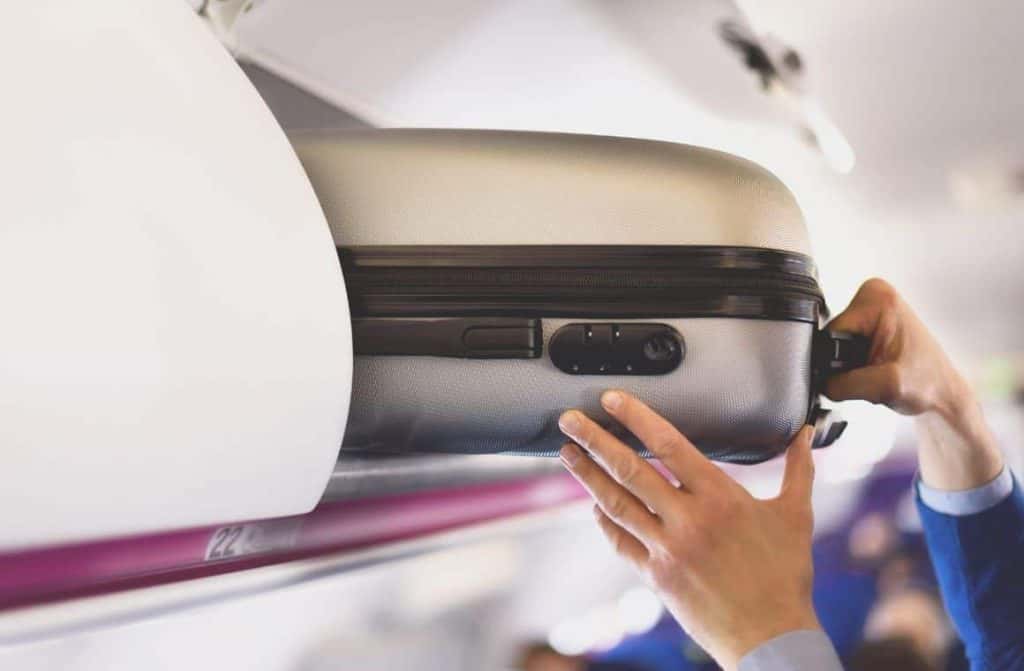
- Wear Your Heaviest Items: This might sound unconventional, but wearing your heaviest items of clothing can save you a significant amount of luggage weight. This doesn’t mean you should layer up until you resemble a walking wardrobe. Rather, wear your chunkiest shoes and heaviest jacket during the flight, freeing up space and weight in your luggage.
- Leverage Airline Loyalty Programs: Many airlines offer perks such as free checked bags to their frequent flyers or credit card holders. If you travel often, it may be worth staying loyal to one airline or investing in an airline-branded credit card. The baggage fee savings could be substantial over time.
- Use Shipping Services: Another unconventional but often practical strategy is to ship your luggage to your destination. If you’re travelling domestically, shipping services might be a cost-effective alternative to exorbitant airline baggage fees. Always remember to compare costs and ensure your items arrive when you need them.

Please keep in mind that not all of these strategies will work in every situation or for every airline, so it’s important to plan and know your airline’s specific baggage policies.
2 Some Innovative Packing Techniques or Products Can Help Optimize Luggage Space, Ensuring the Weight Stays Within the Limits Set by Airlines.
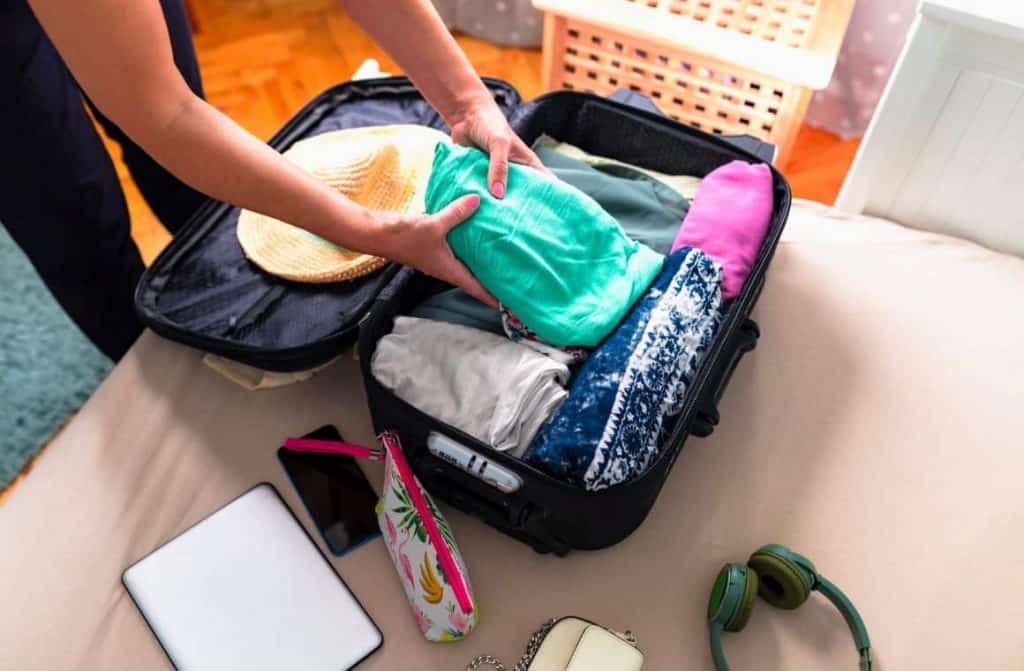
Keep in mind that packing is like a game of Tetris. It’s all about fitting items together in the most efficient way. With these techniques and products, you’ll be well on your way to becoming a packing pro and keeping your luggage weight within airline limits.
- The Rolling Technique: First on the list is the rolling technique. Instead of folding your clothes, roll them tightly. Not only does this method save space, but it also minimizes wrinkles. Win-win!
- Packing Cubes: Packing cubes are a lifesaver when it comes to organizing your suitcase. These lightweight, zippered bags help categorize your clothes and fit neatly into your luggage, optimising space and making it easy to locate your belongings.
- Utilize Dead Space: Look for dead space within your luggage and use it. Shoes are a great example – roll socks or other small items and stuff them inside your shoes. This is essentially free space that would otherwise go unused.
- Compression Bags: For bulkier items like jackets or sweaters, consider using compression bags. They work by squeezing out the air between your clothes, allowing them to take up less space. Just be mindful that while they save space, they don’t reduce weight.
- Multi-Purpose Items: Choose items that serve more than one purpose to save space. For example, a sarong can be a beach towel, a blanket, a sun shield, and an outfit accessory. Similarly, your smartphone can double as a camera, reducing the need for additional gadgets.
- Wearable Luggage: Yes, you read that right! There are wearable luggage products on the market, such as jackets and vests, with pockets big enough to fit clothes, accessories, and gadgets. A great way to carry extra items without checking them in.
3 Specific Airlines or Travel Programs That Offer Generous Baggage Allowances or Exemptions That Travellers Should Consider When Planning Their Trips
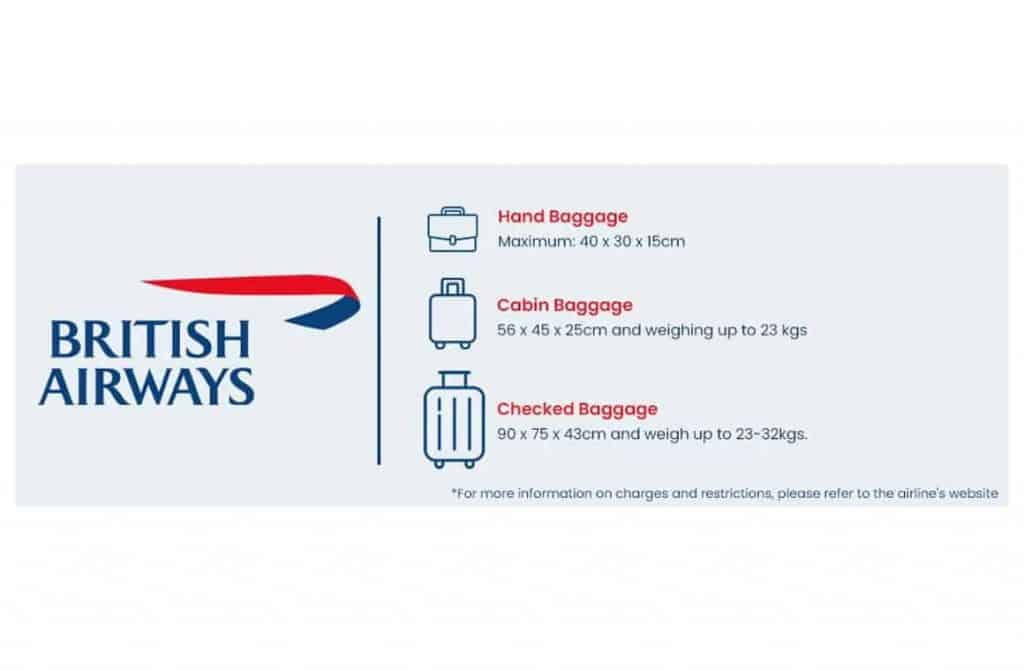
The following are just a few examples. Many airlines have specific programs or cardholder benefits that can save you on baggage fees. Always check the airline’s baggage policy before you book your flight and choose the one that best suits your travel needs.
- Southwest Airlines: Southwest Airlines is the golden child when it comes to baggage fees. This US-based carrier allows two free checked bags per passenger. That’s right, free. This generous policy could save you a considerable amount of money, especially if you’re a heavy packer.
- British Airways: On international flights, British Airways offers a decent free baggage allowance. Economy passengers are allowed one free checked bag, Premium Economy and Business passengers can check in two, while First-class passengers can enjoy three free checked bags. This can be a big advantage when travelling across continents.
- Delta SkyMiles: Delta’s SkyMiles frequent flyer program is another route to dodge those baggage fees. If you hold a Gold, Platinum, or Reserve Delta SkyMiles Credit Card, you can check your first bag for free on Delta flights.
- JetBlue’s TrueBlue Mosaic: JetBlue’s Mosaic status in the TrueBlue program comes with many perks, including waived baggage fees. Mosaic members can enjoy their first and second checked bags for free.
- Turkish Airlines: For those frequently travelling to Europe, Asia, or Africa, Turkish Airlines offers generous baggage allowances. Depending on the ticket type and the route, passengers are allowed to check in one or two bags for free.
- United’s MileagePlus: If you’re part of United’s MileagePlus program and hold a United Explorer Card, you’re eligible for one free checked bag. This becomes particularly beneficial for frequent travellers.
4 Lesser-Known Tips or Loopholes That Can be Utilized to Dodge Baggage Fees While Still Complying with Airline Regulations
- Split Your Luggage: If you’re travelling with a companion, divide your belongings between two suitcases. This might help you avoid overweight baggage fees if both bags stay under the weight limit.
- Duty-Free Shopping: If you’re planning on shopping at your destination or duty-free shops at the airport, keep in mind that these items usually don’t count toward your carry-on limit. You can take advantage of this to carry a few extra items.
- Upgrade Your Ticket: Sometimes, upgrading to premium economy or business class might cost just a bit more than paying for extra luggage, and these upgraded tickets often come with additional baggage allowances. Always compare the cost before making your decision.
- Use Personal Items Wisely: Most airlines allow one personal item along with your carry-on. A small backpack or a large purse can hold a surprising amount of stuff. Just ensure it fits under the seat in front of you.
- Book Directly with the Airline: Some airlines offer free checked baggage when you book directly through their website or app instead of using third-party sites. Check the airline’s official site before booking.
- Use a Baby Stroller: For those travelling with infants, you can usually check a stroller and a car seat for free. Some parents use the stroller storage spaces to pack extra items – just remember to remove them before you check the stroller at the gate.
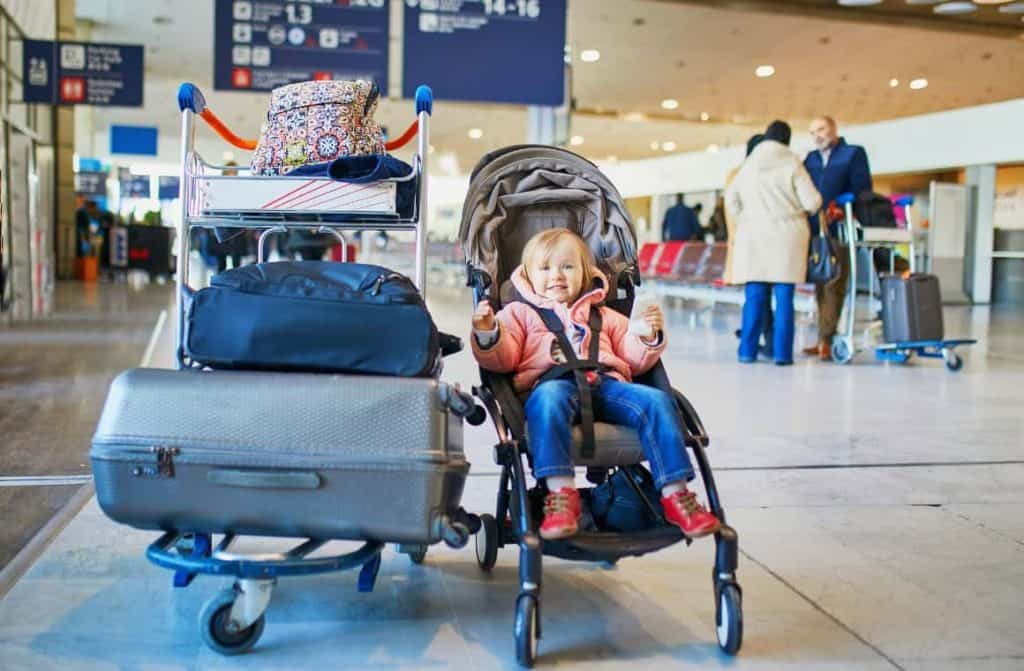
With these tips and loopholes, you might be able to save on baggage fees while still complying with airline regulations. Always remember, though, that policies vary by airline, so it’s essential to check the specific regulations of the airline you’re flying with.
5 How You Can Effectively Plan and Pack for a Trip in a Way That Reduces the Need for Excess Baggage, Allowing You to Avoid Fees Altogether
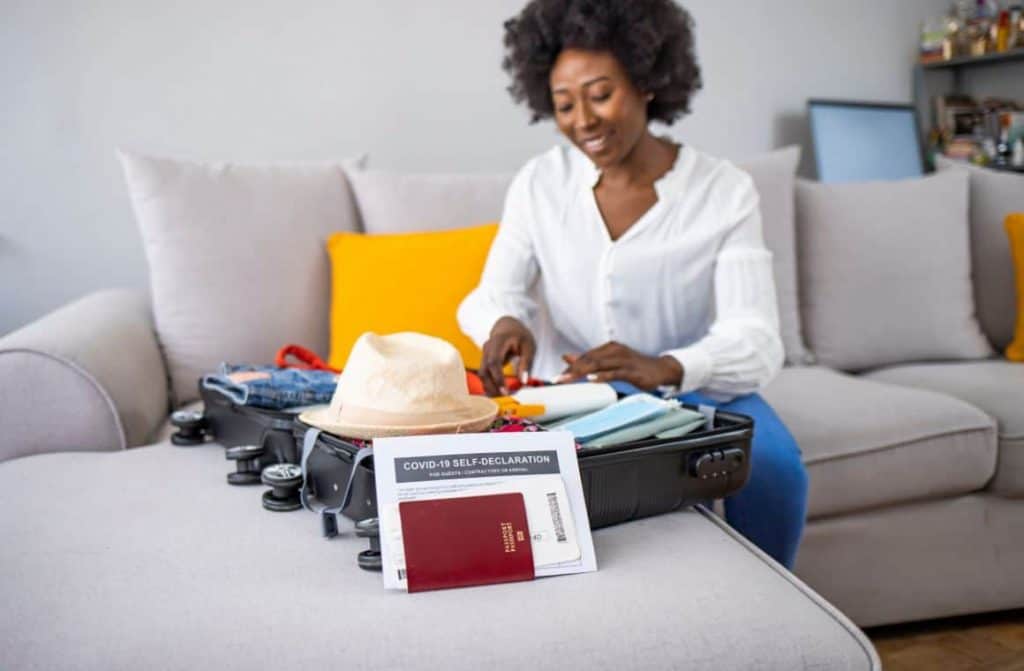
- Make a List: Begin with a packing list. Include everything you think you might need. Then, critically analyze each item, questioning its necessity. This will help you pack only what you truly need and avoid over-packing.
- Layer Up: Instead of packing a big, bulky jacket for a colder destination, consider packing layers. Not only does this save space, but it also offers versatility, as you can add or remove layers depending on the weather.
- Pack for Laundry: Instead of packing two weeks’ worth of clothes for a two-week trip, pack a week’s worth and plan to do laundry. Many hotels and hostels offer laundry services, or you can find a laundromat.
- Opt for Travel-Sized Toiletries: Invest in travel-sized toiletries or refillable mini containers. They take up less space and weight. Remember, you can always buy more at your destination.

- Choose Your Shoes Wisely: Shoes can take up a lot of space and add weight to your luggage. Try to limit yourself to two pairs of shoes: one casual pair for walking, and another appropriate for dining or special events.
- Use a Digital Reader: Instead of packing several books, which add weight and take up space, use a digital reader or e-book app on your smartphone. You can carry hundreds of books without any extra weight.
By planning carefully and packing wisely, you can significantly reduce the need for excess baggage, dodge those pesky baggage fees, and still have everything you need for a great trip. It just takes a little extra thought and effort!
6 The Final Takeaway: Making the Most of Your Luggage Allowance
To conclude, minimising or eliminating airline baggage fees isn’t as daunting as it might initially seem. It’s about understanding the rules, using innovative techniques, and knowing how to pack effectively.
The key lies in planning and being creative. From adopting smart and unconventional strategies like upgrading your ticket or splitting your luggage, to employing innovative packing techniques using packing cubes and compression bags, there are numerous ways to keep your luggage within the airline’s weight and size limits.
Staying informed about airlines or travel programs that offer generous baggage allowances can also save you a pretty penny. Similarly, lesser-known tips or loopholes, like utilizing your duty-free shopping allowance or using the stroller storage spaces when travelling with infants, can offer surprising ways to dodge baggage fees.
Perhaps most importantly, understanding how to effectively plan and pack for a trip, with a careful selection of essentials and the smart use of available space, can help you avoid the need for excess baggage altogether.
Remember, every bit of space in your luggage counts, and every dollar saved on baggage fees is a dollar more you can spend enjoying your trip. Keep these tips in mind, and you’ll be well on your way to becoming a savvy, budget-conscious traveller. Here’s to lighter bags and fuller wallets on your next journey! Safe travels!
7 FREQUENTLY ASKED QUESTIONS
How much do airlines charge for overweight baggage?
The charges for overweight baggage generally differ by airline and can range from approximately £36 ($50) to £145 ($200) per bag over the weight limit. Nevertheless, specific fees may be influenced by factors such as the type of flight and passenger ticket class. For the most accurate information, consult the specific airline’s baggage policy or contact their customer service.
How much does extra baggage cost per kg?
The cost for extra baggage per kg can widely vary depending on the specific airline’s policy. On average, airlines may charge anywhere from £10 to £20 per additional kg of checked baggage. However, it’s crucial to check with the specific airline for accurate costs, as these can change depending on various factors such as the travel destination and ticket type.
Do all airlines charge for baggage?
No, not all airlines charge for baggage. Many airlines, especially full-service ones, often include at least one piece of checked luggage in the ticket price. However, most low-cost or budget airlines typically charge an additional fee for checked baggage. The policy can vary greatly from one airline to another, so it’s always recommended to check the specific baggage policy of the airline you are flying with.
How much does extra baggage cost for international flights?
The cost of extra baggage for international flights can vary widely depending on several factors including the airline, the destination, the weight of the extra baggage, and whether the extra baggage fee was paid in advance or at the airport. As such, it would be best to check the baggage policy of the specific airline in question for the most accurate information.


